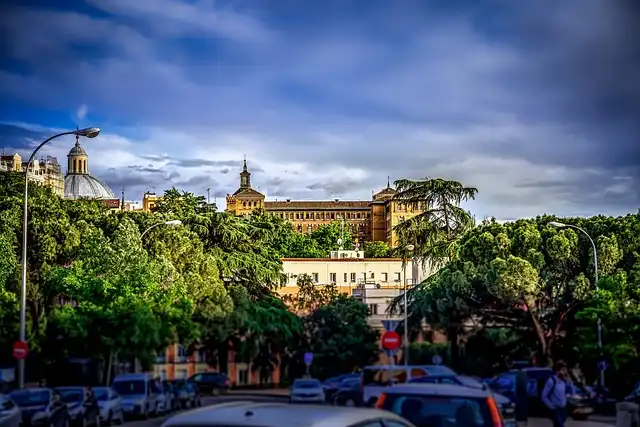Faculty heavily back Harris—but they won’t tell students to

Matthew Mayhew, the William Ray and Marie Adamson Flesher Professor of Educational Administration at Ohio State University, said disciplinary context is very important in interpreting such results.
Participants from the social sciences techniques, consisting of education and learning and fields connected to politics, were somewhat of an outlier. Of the 351 respondents from this location, 43 percent said they intend to talk about the political election in course, and 29 percent claimed they plan to review it with their pupils one-on-one. Those are still minorities, but are a lot greater than the prices in other corrective classifications– particularly business/law and natural and physical sciences/science, mathematics, engineering and modern technology.
Agitations regarding going over the election aside, virtually 80 percent of participants did state they intend to urge pupils to elect. There’s an additional partial excitement space right here: The price was 85 percent amongst Democratic faculty, yet just about half of Republican respondents stated they will certainly do the same.
A lot of respondents are tenured or period track (69 percent). The rest are part-time, non– period track (7 percent); permanent, non– period track (22 percent); or holding other positions (3 percent). Most have actually functioned as a teacher for 10 or more years (85 percent). Nearly all are signed up to elect (97 percent).
In 2020, the conventional National Association of Scholars published a research study of tenured and tenure-track teachers at top-ranked establishments in their states, finding that concerning 48 percent were registered Democrats and 6 percent were Republicans. The brand-new Within Higher Ed/Hanover Research poll was sent out to a wider series of faculty members– consisting of non-tenure-track professors– at a bigger variety of institutions.
Of every age groups, younger professors– those in their thirties– claimed their personal national politics influence their research study the most. Of the 61 respondents in that age group, 38 percent stated their national politics are very or exceptionally influential on their study. That age likewise had the highest price claiming the very same for training: 27 percent.
The Trump-Vance ticket only obtained the backing of two-thirds of Republican participants, whereas 98 percent of Autonomous faculty members support Harris-Walz. Two-thirds of the Democrats said they prepared to contribute to a event, prospect or team , contrasted to just 16 percent of the Republicans. And, while 29 percent of the Democrats intended to project or organize for a party or prospect, only 8 percent of the Republicans did.
Respondents to a brand-new Inside Greater Ed/Hanover Research study poll mostly identified as Democrats– with just 8 percent sustaining Trump. Conscious they’re to the left of their trainees and states, they’re mostly keeping their ideas to themselves.
Nicholas Havey, an independent scientist of political polarization, scholastic freedom and cost-free speech in higher education, told Inside Higher Ed that his very own study recommends professors are typically extra liberal than students.
Not remarkably, this aberration is most stark among the 330 participants southern: Almost fifty percent of them stated they’re a lot further to the left of their state, while another 3rd said they’re rather additional to the left. And 71 percent of the 249 participants from the Midwest claimed they’re to the left of their state.
Inside Greater Ed and Hanover Study sent invitations via e-mail to faculty members at a wide variety of two- and four-year institutions, public and personal, from Sept. 16 to Oct. 4. We gathered 1,133 completely or partly finished surveys from professors at 739 public and 376 personal nonprofit institution of higher learnings. The margin of error for this study is 2.9 percent.
Out of all participants, 37 percent blamed managers and regulating boards. Regarding a quarter condemned benefactors for raising disharmony over speech. While Republican politician politicians have actually pointed the finger at liberal students and professors for intensifying these stress, only about 15 percent of faculty participants criticized students or professors themselves.
Of the 351 respondents from this area, 43 percent stated they prepare to go over the election in class, and 29 percent claimed they prepare to discuss it with their students one-on-one.
Fewer than one in 10 said their individual politics are very or incredibly influential on their training, and just 14 percent said they were moderately significant. When it concerned research, 18 percent stated their politics were really or extremely influential on what they examine and publish, and 15 percent stated they were reasonably prominent.
Whichever means the election goes, the result can interrupt school environments where different beliefs must coexist. And disruption could additionally come from off campus, from politicians and others. Over a third of all participants said they were very or incredibly worried the election will impact how welcome, valued, supported and secure students, workers and visitors really feel on their schools. An additional 29 percent claimed they’re moderately concerned.
The faculty members claimed they are aware their politics are up to the left of pupils’. While a third of respondents claimed their politics are concerning the exact same as the dominant national politics among pupils on their own university, more– 37 percent– stated they’re rather more. An additional 14 percent stated they’re a lot further left of students. Only 15 percent stated they’re rather better best than students, and just 2 percent said they’re much further best.
Just a quarter of participants said their national politics were straightened with the leading politics in their state. A 3rd said they were somewhat further to the left and one more third stated they were a lot more to the.
And while a frustrating percentage of respondents said they’ll urge pupils to cast tallies, that doesn’t imply they’ll inform those trainees whom to cast them for. In fact, just 2 percent of participants claimed they intend to encourage pupils to vote for anyone– or any kind of party– in particular.
Of the greater than 1,100 faculty members across the U.S. who reacted to a brand-new Within Greater Ed/Hanover Researchsurvey, practically none claimed they’re sitting this governmental political election out. Ninety-six percent said they prepare to vote. And they extremely plan to elect Democrats.
The new findings extensively echo past study revealing that professors lean. Virtually 60 percent of respondents claimed they were Democrats, and the next biggest group wasn’t Republicans but instead Independents, at 22 percent. Republicans appeared at 7 percent, not far in advance of the “various other” and “prefer not to react” categories, each at 5 percent.
Professors may simply feel it’s improper to inform or perhaps recommend to pupils whom they should elect. Yet there might be other elements. Havey stated professors “worry retaliation and for reviewing their national politics, specifically in circumstances where they could really feel to the left or to the right of the trainees that they are interacting with.”
The remainder are part-time, non– tenure track (7 percent); full time, non– period track (22 percent); or holding other positions (3 percent). Virtually 60 percent of participants claimed they were Democrats, and the following most significant classification wasn’t Republicans however instead Independents, at 22 percent. While a 3rd of participants said their politics are about the same as the dominant national politics amongst pupils on their very own school, even more– 37 percent– stated they’re somewhat further. Just 15 percent said they’re somewhat further appropriate than students, and just 2 percent said they’re much additionally.
A lot of professors participants claimed they do not intend to talk about the political election in class or one-on-one with trainees. Virtually fifty percent of respondents claimed they really feel less cost-free to discuss federal politics than a year back.
While almost eight in 10 who reacted to the brand-new study plan to support Harris, just 57 percent of university student revealed support for the Autonomous ticket in an Inside Higher Ed/Generation Laboratory study from the recently of September. And while fewer than one in 10 professors participants claimed they intend to choose Trump, 2 in 10 trainees claimed they would certainly.
Even before the election, some schools have actually dealt with chaos this semester amidst continuing pro-Palestinian protests and conventional campus audio speaker sees. Two-thirds of faculty participants over all blamed political leaders for rising tensions over university speech, and three-quarters of Southern respondents positioned the blame on them.
Seventy-eight percent assistance Kamala Harris and running companion Tim Walz, while just 8 percent of the respondents back Donald Trump and JD Vance, according to the study, which has a 2.9 percent margin of mistake. While their personal support for Democrats was overwhelming, virtually no participants claimed they plan to inform pupils which event or candidate to vote for.
While it might seem this important political election is something professors would certainly wish to talk to trainees concerning, fewer than a third of respondents stated they intend to review it in course. And only a fifth said they plan to speak about it with trainees one-on-one.
Faculty members don’t simply have to stress over politicians’ or managers’ ire, obviously. Two-thirds of participants claimed they’re very or extremely worried concerning the declining public confidence in higher education. And it’s that public, of course, that chooses the president.
Matthew Mayhew, the William Ray and Marie Adamson Flesher Teacher of Educational Administration at Ohio State University, said corrective context is extremely essential in translating such outcomes. He stated a large majority of Republican professors pattern towards company or medical colleges, where courses do not center on discussing existing political occasions. Only 63 percent of the study participants from business/law sustained Harris/Walz.
1 faculty2 Inside Higher
3 percent
4 Respondents
5 students
« Students not planning to vote cite dislike of candidatesVanderbilt’s chancellor champions institutional neutrality »
